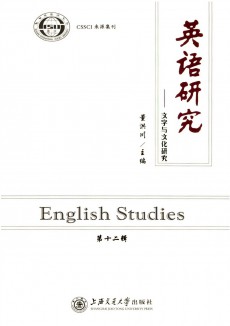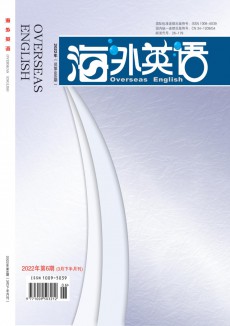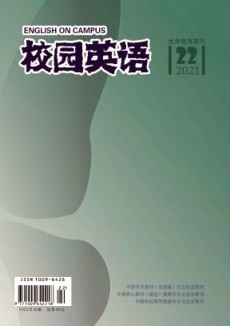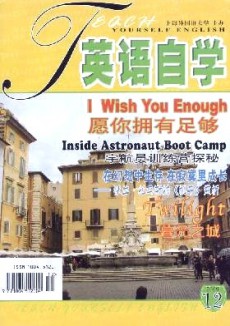英語月考總結大全11篇
時間:2023-03-13 11:08:01緒論:寫作既是個人情感的抒發,也是對學術真理的探索,歡迎閱讀由發表云整理的11篇英語月考總結范文,希望它們能為您的寫作提供參考和啟發。

篇(1)
Expecting a baby?
HEALTHY BABY: Manitoba’s Prenatal(懷孕) Benefit and Community Support Programs
It’s what’s inside that counts
When you’re pregnant, it’s important that you eat well to help you and your growing baby. That’s why if you live in Manitoba and your net family income is less that $ 32,000 a year, the Manitoba government offers you a monthly cheque during your pregnancy to help you buy healthy foods and prepare for your baby’s arrival.
How to apply
Pick up an application form from medical offices, Healthy Baby community programs or by calling the number below. The application form must include a medical note indicating your baby’s due date, so see your health care provider early.
More support for you and your baby
Through Healthy Child Manitoba, Healthy Baby also offers community programs which help you to learn more about nutrition, health and parenting a baby.
For more information, please call:
945-1301( in Winnipeg )
1-888-848-0140( at no cost )
945-1305 TDD( Telephone Device for the Deaf)
1. What program is this passage about?
A. Baby food. B. Low-income families.
C. Women’s health. D. Birth and growth of healthy babies.
2. Who can enjoy the benefits of the program?
A. Pregnant women of high risk. B. pregnant women of first child.
C. pregnant women in good health. D. Pregnant women with low income.
3. The most important information to be filled in the application forms is ______.
A. the pregnant woman’s name B. when the baby is due to arrive
C. the pregnant woman’s medical history D. in which hospital the baby is to be delivered
4. Healthy Baby will also provide more help in all aspects but ______.
A. baby education B. baby nutrition C. baby parenting D. baby health
5. For further information, the deaf can ______.
A. call 945-1305TDD B. dial 1-888-848-0140
C. visit their health care provider D. send email to a medical office
Passage Two
In the past, people who graduated from college felt proud of their academic achievements and confident that their degree would help them to find a good job.
However, in the past four years the job market has changed dramatically. This year’s college graduates are facing one of the worst job markets. For example, Ryan Stewart, a graduate of san Jose State University, got a degree in religious studies, but he has not gotten any job offers. He points out that many people already working are getting laid off and don’t have jobs, so it’s even harder for new college graduates to find jobs.
Four years ago, the future looked bright for his class of 2006. There were many high-tech (“dotcom”) job opportunities, graduates received many job offers, and they were able to get jobs with high salaries and benefits such as health insurance and paid vacations. However, “Times have changed. It’s a new market.” according to an officer of the university.
The officer says students who do find jobs started preparing two years ago. They worked during summer vacations, they have had several short-time jobs, and they majored in fields that are still paying well, such as accounting or nursing.
Even teaching is not a secure profession now. Ryan Stewart wanted to be a teacher, but instead he will probably go back to school in order to become a college teacher. He thinks college teaching could be a good career even in a bad economy.
In conclusion, these days a college degree does not automatically lead to a good job with a high salary. Some students can only hope that the value of their degree will increase in the future.
1. What did a college degree mean to people in the past?
A. It was a proof of their professional skills.
B. It would guarantee their quick promotion.
C. It built up their confidence in the job market.
D. It would help them to start an academic career.
2. Ryan Stewart has not got any job offer because_______.
A. there are too many graduates of his major
B. he wants to find a job with very high salary
C. he has not received a degree in the university
D. the job market has changed greatly since 2002
3. According to the passage, _______ had the best job prospects in 2002.
A. computer science B. accounting C. teaching D. nursing
4. Why does Ryan Stewart want to be a college teacher?
A. Teaching jobs are well-paid.
B. He majored in teaching in the university.
C. College teaching is less challenging than high-tech jobs.
D. College teaching career won’t be influenced by economy.
5. It can be concluded from the passage that _______.
A. the value of a college degree has decreased now.
B. new college graduates today can’t find jobs.
C. a college degree can still lead to a good job.
D. graduates must prepare early to find jobs.
Passage Three
Shoron Keating was worried about her kids when she got a divorce. Her daughter says, “ I was feeling … like down and sad even though I didn’t really show it.
Judith Wallerstein says problems from divorce can last many years. They can show up when the kids are adults. And the kids have their own trouble. Wallerstein studied 93 children over a generation. The results can be found in her book.
She says that children of divorce are more likely to have problems with drugs. They are far more likely to seek therapy. About 40 percent of them avoid marriage themselves. When they do marry, fail at nearly twice the usual rate. It is hard for them to trust. They are afraid of failing.
Critics say Wallerstein had too few children in her study. They think that Wallerstein stresses too much from a small study. Other things may be the cause of the kid’s problem. The study does not compare kids from divorced families with kids from “healthy” families.
Wallerstein’s families divorced a generation ago. Times have changed. People feel different about divorce. Today programs like Kid’s Turn try to reduce some of the effects of divorce with family advice. Talking about their feelings helps the kids get though it. Since they know more about the problem, maybe the kids will be able to handle it.
1. Which word can best describe the kids from divorced families according to Paragraph 1?
A. Offensive B. Relieved C. Depressed D. Prejudiced
2. Children from divorced families who marry later will ______.
A. have no trust in other people
B. be more likely to get divorced
C. firmly protect their marriage
D. have stable marriage
3. Wallerstein’s study showed that ______.
A. divorce left the children with many problems
B. all the problems showed up right after the divorce
C. divorce could be avoided
D. divorce is the only cause of children mature earlier
4. Which of the following is critics’ opinion?
A. Healthy families do not have problems.
B. All the related factors were considered in the study.
C. Divorce is the only cause of child problems.
D. The number of families studied was not sufficient.
5. Today children from divorced families______.
A. have no more problems
B. are getting more care and help
C. are less able to handle their problems
D. are told not to talk about their problems
Passage Four
It is still sometimes difficult to understand why those between ages 10 and 18 would endanger their lives by joining armed forces or rebel groups and become fighting soldiers. The recently published book, Young Soldier, Why They Choose to Fight By Rachel Brett and Irma Specht, tries to find an answer.
There is no doubt that children fight in most armed conflicts today. While international attention focuses largely on those who are forced into battles, thousands more enlist (應征入伍) voluntarily.
In an attempt to to understand the young who take up arms, Brett and Specht interviewed 53 boy and girl soldiers and ex-soldiers from around the world, Afghanistan , Colombia, the Republic of the Congo for example. All interviewees were involved with armed forces or armed groups before the age of 18 and all classified themselves as volunteers.
What these two field officers heard is “I joined involuntarily- if you have nothing, you volunteer for the army”. Other reasons young people gave are self- defense, revenge, poverty, and unemployment.
But while it is common knowledge that most child soldiers come from poor and disadvantaged backgrounds, Young Soldiers shows that the issue is far more complex. Many poor children do not join the army. The environmental, educational, social, cultural, and highly personal factors determine whether someone decide to join up or not.
The battlefield is not a place for children. One young soldier described being there as “too sad an experience”. The authors hope that by understanding why teenagers join up, those child soldiers should know how to discourage others from the same tragedy.
1. Young Soldiers, Why They Choose to Fight is ______.
A. a book B. a magazine C. a news report D. a TV program
2. According to paragraph 3, Brett and Specht’s interviewees _______.
A. joined armed forces under 18
B. considered going into the army their duty
C. were only from African countries
D. were mainly the ex-soldiers
3. The reasons shown in young soldiers for children to join the army are______.
A. very simple B. very complex C. unknown D. unbelievable
4.The writers of Young Soldiers probably expect that ______.
A. child soldier would leave armed forces
B. they could find more than 53 interviewees
C. no more children would join armed forces
D. there would be no wars in the world
5. The tone of the passage is ______.
A. pleasant B. indifferent C. humorous D. objective
Passage Five
It’s interesting that technology often works as a servant for us, yet frequently we become a servant to it. E-mail is a useful tool but many feel controlled by this new vehicle. The average businessperson is getting about 80-e-mails per day and many feel that about 80% of the messages in their “In Box” are of little or no value.
So, I have four suggestions to help you to become better at “Easing E-mail”.
1.Get off the lists. The best way to deal with a problem is to never have it. If you are receiving a lot of unwanted e-mails, ask to be removed from the various lists. This would include your inclusion in unwanted “cc” lists.
2.“Unlisted address”. Just like getting an “unlisted” telephone number that you share only with those whom you want to give direct access, you might want to get a separate e-mail address only for the important communications you wish to receive.
3.Check it once or twice per day. Many I speak with are becoming chained to their email server, monitoring incoming email on a continuous basis. Maybe this is because e-mail creates its own sense of urgency, but most of the communications are not all that urgent. I respond to them a couple of times per day.
4.Deal with it. As you open each e-mail do one of the following:
a.If it requires a quick response, respond to it and delete it.
b.If it requires a response but is not the best use of your time, try to find someone else to do it.
c.If it is going to take any serious amount of time to respond, schedule it for action in your Day Planner and then download the message, save it, or print it out for future action.
I personally receive approximately 250 e-mails per day and by practicing the suggestions above, I can handle that volume in about an hour, taking advantage of this fantastic tool but not being controlled by it to the distraction of more important tasks in my day.
1. The passage is about ______.
A. how to check e-mails
B. how to collect e-mails
C. how to deal with your daily e-mails
D. how to deal with 80% valueless e-mails
2. If you get unwanted e-mails, the best you can do is to______.
A. make a list of them
B. put them into “cc” lists
C. send them to a special address
D. delete them from different lists
3. For the important communications, the writer suggests that you______.
A. have a direct access for them
B. have several e-mail servers for them
C. get an unlisted phone number for them
D. get a special e-mail address for them
4. To avoid being chained by the coming e-mails, what you can do is to ______.
A. respond urgent ones only
B. reply all of them at the same time
C. handle them a couple of times daily
D. keep replying e-mails all day long
5. To deal with an e-mail you get, you can do the following EXCEPT______.
A. downloading every e-mail before you reply
B. responding right away if it’s urgent
C. scheduling it for later reply if it takes much time
D. asking someone else to reply it if it’s not at your convenience
Passage Six
During the Christmas shopping rush in London, the interesting story was reported of a tramp who, apparently though no fault of his own, found himself locked in a well-known chain store late on Christmas Eve. No doubt the store was crowded with last-minute Christmas shoppers and the staff were dead beat and longing to get home. Probably all the proper security checks were made before the store was locked and they left to enjoy the three-day holiday untroubled by customers desperate to get last-minute Christmas presents.
However ridiculous that may be, our tramp found himself alone in the store and decided to make the best of it. There was food, drink, bedding and camping equipment, of which he made good use. There must also have been television sets and radios. Though it was not reported if he took advantages of these facilities, when the shop reopened he was discovered in bed with a large number of empty bottles beside him. He seem to have been a man of good humor as indeed tramps very commonly are.
Everyone else was enjoying Christmas, so he saw no good reason why he should not do the same. He yielded himself cheerfully, and was taken by the police. Perhaps he had had a better Christmas than usual. He was sent to prison for seven days. The judge awarded no compensation to the chain store for the food and drink our tramp had consumed. They had, in his opinion, already received valuable free publicity from the story revealed in the newspaper and on television. Perhaps the judge had had a good Christmas, too.
1.The tramp was locked in the store ______.
A. for 7 days B. on purpose C. by accident D. for security reasons
2. It can be inferred from the passage that the underlined phrase “dead beat” in paragraph 1 means ______. A. angry B. exhausted C. forgetful D. careless
3. Which of the following was uncertain about the tramp after he was locked in the store?
A. He watched TV. B. He was well fed. C. he had a sound sleep D. He had a good drink.
4. When the tramp was arrested, he ______.
A. was drunk B. felt he deserved it C. made no resistance D. felt himself wronged
5. The judge didn’t award compensation to the chain store because ______.
A. the store was responsible for what happened
B. the report of the event benefited the store a lot
C. the tramp had stolen nothing of value
D. the tramp was penniless
Passage Seven
If you want to stay young, sit down and have a good think. This is the research result of professor Faulkner, who says that most of our brains are not getting enough exercise and as a result, we are ageing unnecessarily soon.
Professor Faulkner wanted to find out why healthy farmers in northern Japan appeared to be losing their ability to think and to reason at a relatively early age, and how the process of ageing could be slow down.
He set about measuring brain volumes of a thousand people of different ages and occupations.
Computer technology enabled him to obtain precise measurements of the volume of the front and side sections of the brain, which relate to intelligence and emotion, and determine the human character.
Contraction of front and side parts - as cells die off - was observed in some subjects in their thirties, but it was still not evident in some sixty-and seventy-year-olds.
Faulkner concluded from his tests that there is a simple way to slow the contraction - using the head.
The findings show that contraction of the brain begins sooner in people in the country than in the towns. Those least at risk, says Faulkner, are lawyers, followed by university professors and doctors. White-collar workers doing routine work are, however, as likely to have shrinking brains are as the farm worker, bus driver and shop assistant.
Faulkner’s findings show that thinking can prevent the brain from shrinking. Blood must circulate properly in the head to supply the fresh oxygen the brain cells need. “The best way to maintain good blood circulation is through using the brain,” he says. “Think hard and engage in conversation. Don’t rely on pocket calculator.”
1.Professor Faulkner wanted to find out ______.
A.how people’s brains shrink
B.the way of making people live longer
C.the size of certain people’s brains
D.why certain people aged sooner than others
2.Faulkner’s research findings are based on ______.
A.a survey of farmers in northern Japan
B.tests performed on a thousand old people
C.the study of the brain volumes of different people
D.the latest development of computer technology
3.The professor’s tests show that ______.
A.our brains shrink as we grow old
B.the front section of the brain does not shrink
C.seventy-year-olds have better brains than sixty-year-olds
D.brain contraction may vary among people of the same age
4.The underlined word “ subjects” in Paragraph 5 means ______.
A.branches of knowledge studied in a school
B.something to be considered
C.persons experimented on
D.citizens in a country
5.According to the passage, which group of people seem to age slower than the others?
A. farmers B. Lawyers C. Clerks D. Shop assistants
Passage Eight
News has just been received of an air crash in the north of England. The plane, which was on a charter flight from London to Carlisle, was carrying a party of businessmen on their way to a trade fair. It seems likely that the plane ran into a heavy fog as it was approaching Carlisle and was obliged to circle for some twenty minutes. Everything seemed to be going well. The pilot was in constant radio communication with Ground Control when the engines suddenly cut out and all contact was lost. The plane crashed on the site of the ancient Roman camp at Hadrian’s Hill, a place well known to archaeologists and tourists.
So far few details have been reported, but it is feared that at least twenty people lost their lives, among them the pilot, who was killed instantly. The local ambulances and firemen were on the scene within minutes of the crash, but additional help had to be rushed from other areas.
Mr. Lesilie Collins, one of the survivors, told our reporter, “We passengers noticed the engines were making a funny noise. Of course we couldn’t see anything because of the fog, but the pilot said there was nothing to worry about. The next thing we know, the engines went dead. There was a rushing noise - and after that I don’t remember any more.”
Mr. Collins is now in hospital, being treated for minor injuries. We will be bringing you further news of the crash as we receive it. In the meantime relatives are asked to ring 02-3457211 for information.
1.The plane was ______.
A. flying some businessmen to London B. on a regular flight to London
C. returning from a trade fair D. bound for Carlisle
2. What happened when the plane was nearing Carlisle?
A. The pilot misread the signals from Ground Control.
B. Ground Control failed to send out right instructions.
C. The pilot got a report of terrible weather.
D. The engines broke down.
3. According to the passage, the plane crashed at ______.
A. a place in southern England B. a place of historical interest
C. a military training camp D. a camp near London
4. The news report tells us that when the crash occurred ______.
A. the ambulance and firemen arrived quickly B. none of the passengers was killed
C. no additional help was necessary D. help was long delayed
5. From what Mr. Collins said, we can know that he ______.
A. had only an incomplete picture of what happened B. heard and saw nothing at all
C. talked to the pilot D. was once a pilot
Passage Nine
Long after the 1998 World Cup was won, disappointed fans were still cursing the disputed refereeing(裁判) decisions that denied victory to their team. A researcher was appointed to study the performance of some top referees.
The researcher organized an experimental tournament(錦標賽) involving four youth teams. Each match lasted an hour divided into three periods of 20 minutes during which different referees were in charge.
Observers noted down the referees’ errors, of which there were 61 over the tournament. Converted to a standard match of 90 minutes, each referee made almost 23 mistakes, a remarkable high number.
The researcher then studied the videotapes to analyse the matches in detail. Surprisingly, he found that errors were more likely when the referees were close to the incident. When the officials got it right, they were, on average, 17 meters away from the action. The average distance in the case of errors was 12 meters. The research shows the optimum(的) distance is about 20 meters.
There also seemed to be an optimum speed. Correct decisions came when the referees were moving at a speed of about 2 meters per second. The average speed for errors was 4 meters per second.
If FIFA, football’s international ruling body, wants to improve the standard of refereeing at the next World Cup, it should encourage referees to keep their eyes on the action from a distance, rather than rushing to keep up with the ball, the researcher argues.
He also says that FIFA’ s insistence that referees should retire at age 45 may be misguided. If keeping up with the action is not so important, their physical condition is less critical.
1. The experiment conducted by the researcher was meant to ______.
A.set a standard for football refereeing
B.reexamine the rules for football refereeing
C.analyse the causes of errors made by football referees
D.review the decisions of referees at the 1998 World Cup
2.The number of refereeing errors in the experimental matches was ______.
A. quite unexpected B. slightly above average
C. as high as in a standard match D. higher than in the 1998 World Cup
3. The finding of the experiment show that ______.
A. errors are less likely when a referee stays in one spot
B. the more slowly the referee runs the more likely will errors occur
C. the farther the referees is from the incident the fewer the errors
D. errors are more likely when a referee keeps close to the ball
4. The word “official” (Line2,Para.4) most probably refers to ______.
A. the researchers involved in the experiment
B. the referees of the football tournament
C. the observers at the site of the experiment
D. the inspectors of the football tournament
5. What is one of the possible conclusions of the experiment?
A. Age should not be the chief consideration in choosing a football referee.
B. A football referee should be as young and energetic as possible.
C. The ideal retirement age for an experienced football referee is 45.
D. An experienced football referee can do well even when in poor physical condition.
Passage Ten
Toronto: A 300-pound adult Siberian tiger escaped from its four-meter high chain-link-pen at the Toronto Zoo yesterday, on one of the busiest days of the year.
Though no one was hurt, the dangerous animal was separated from the public for a time by nothing more than a four-foot fence. The escape occurred after one of the animal’s handlers left the pen gate open. It prompted a swift response from officials. Staff were sent immediately to arrest the runaway tiger.
General Manager Calvin White told reporters that staff were preparing for the worst. “I ordered a tranquilizer (麻醉劑) gun so we would have tranquilized her, but thankfully we didn’t have to,” Mr. White said. The tiger was successfully led back into its cage after the brief escape.
The incident occurred during the Toronto Zoo’s 28th annual Christmas Treats Walk, where admission is free in return for donations of food that does not easily go bad.
Thousands of people attend each Boxing Day to see the animals fed by their handlers.
1.The tiger escape happened ______.
A. owing to the lack of food B. due to its separation from the public
C. because of the handler’s neglect of duty D. as a result of the damage chain and fence
2. Who is Calvin White?
A. A managerial staff of the Zoo. B. A journalist from National post.
C. A witness of the incident. D. A zoo animal handler.
3. We know from the passage that ______.
A. the tiger escape lasted a whole day
B. the zoo workers planned to shoot the tiger dead
C. the tiger wasn’t kept securely enough from the public
D. the incident took place on the zoo’s anniversary day
4. The Best title for the news report is ______.
A. Pen-Animal B. Zoo Tiger-Wandering Free
C. Siberian Tiger-Dangerous Animal D. Zoo-Dangerous site
Passage Eleven
“I love you, Bob.” “I love you, too, Nancy.” It was 2 a.m. and I was hearing my parents’ voices through the thin wall separating my bedroom from theirs. Their loving words were sweet, touching - and surprising.
My parents married on September 14, 1940, after a brief dating. She was nearing 30 and knew it was time to start a family. The handsome, well-educated man who came by the office where she worked looked like a good bet. He was attracted by her figure, her blue eyes. The romance didn’t last long.
Seeds of difference grew almost immediately. She liked to travel; he hated the thought. He loved golf; she did not. He was a Republican, she a loyal Democrat. They fought at the bridge table, at the dinner table, over money, over the perceived shortcomings of their respective in-laws.
There was a hope that they would change once they retired, and the angry winds did calm somewhat, but what remained changed itself into bright, hard bitterness. “I always thought we’d …” my mother would begin, before launching into a precise listing of my father’s faults. The complaints were recited so often, I can repeat them by heart today. As he listened, my father would say angry threats and curses in a low voice.
It wasn’t the happiest marriage, but as their 60th anniversary approached, my sister and I decided to throw a party. Sixty years was a long time, after all; why not try to make the best of things? We’d provide the cake, the balloons, the toasts, and they’d follow one rule: no fighting.
The agreement was honored. We had a wonderful day. When we thought back, we found it was an important celebration, because soon after, things began to change for my parents.
1.Bob married Nancy because of ______.
A. her nice appearance B. her good education
C. her romantic nature D. her position as an office girl
2. When the writer told the story, the mother was probably ______ years old.
A. 60 B. 70 C. 80 D. 90
3. What do we know about the writer’s parents?
A. Their marriage is a total failure.
B. They had different hobbies.
C. They had serious money problem.
D. They stopped quarrelling after they had children.
4. The purpose for the writer to hold the party is ______.
A. to recall the 60 years’ marriage life of her parents
B. to stop the long fighting between her parents
C. just to celebrate her parents’ 60th anniversary
D. to have a good time for family’s reunion
Passage Twelve
What can you do to recall your dreams more often and interpret them more clearly? The experts offer these suggestions:
Develop an idea. Before you go to sleep, consciously think about a topic or a person you’d like to dream about. Raise a question that’s troubling you and see how your dream responds to it.
Keep track. Next to your bed, place a pen and some paper, or a tape recorder or laptop, to record your dreams as soon as you wake up.
Try to wake up naturally, without the help of an alarm clock or barking dog that can interrupt
your dream cycle. If your schedule doesn’t allow you to sleep in during the week, begin your dream journey on a weekend or during a vacation.
Wake up slowly. For the first moment after you wake up, lie still and keep your eyes closed, because your dream may be connected to your body position while you slept. Try to recall the dream and then store it in your memory by giving it a name like “Late for an exam” or “My Date with Ashley Judd”. When you rise, immediately write down as many images, feelings and impressions as you can.
Connect the dots. To better interpret your dreams, try to make connections between you recalled dreams and recent events. Do you recognize people from the present or past? Can you detect any themes from the dream? Look for patterns over several dreams that might help explain an individual dream.
Change the outcome. If you have nightmares happening again and again that make it difficult to sleep, try to change the endings. Once you wake up from a bad dream, imagine a change in the action to create a more positive outcome. If you are trapped, try to fly. In your dream, you can do what you want!
1.The passage advices you to “wake up slowly” ______.
A.because dreaming usually happens not long before you wake up
B.because sleeping posture may be related to your dream
C.so as not to connect your dreams
D.so as not to have a nightmare
2.The underlined word “rise” (Paragraph5) means “______”.
A. come up B. stand up C. wake up D. get up
3. According to the passage, how can you overcome a nightmare?
A. Try to imagine you are a superman. B. Try to create a new ending of the nightmare.
C. Try to think about some happy things. D. Try to forget the nightmare.
4. In which column of a magazine or newspaper may the article appear?
A. Finance. B. Sports. C. Health. D. Politics.
閱讀理解答案:
Passage one 1. D 2. D 3. B 4. A 5. A
Passage two 1. C 2. D 3. A 4. D 5.A
Passage three 1. C 2. B 3. A 4. D 5. B
Passage four 1. A 2. A 3. B 4. C 5. D
Passage five 1. C 2. D 3. D 4. C 5. A
Passage six 1. C 2. B 3. A 4. C 5. B
Passage seven 1. D 2. C 3. D 4. C 5. B
Passage eight 1. D 2. D 3. B 4. A 5. A
Passage nine 1. C 2. A 3. D 4. B 5. A
篇(2)
月考全面的自我總結模板1在這次月考中,我總分291分,全級排名195名,比較上一次入學摸底考試,倒退了45個名次。我深感汗顏。從這次月考中,我深深體會到了“不進則退”的深刻含義,明確了在這里學習的緊迫。反省這次考試,有不少教訓。
1、在考試的過程中,切記要聚精會神,不要因為一些外來的因素而擾亂了自己的心神,切忌心不在焉。
2、在考試中,卷面很重要,尤其是語文科中的作文,可以不夸張地說,卷面決定了作文的命運。
所以在答題過程中,既要看清題目,也一定要注意卷面整潔。
3、在語文作文中,一定要注意審清題目,一定要注意看清楚作文題目中的剛性要求。
4、在數學考試中,將近八十分的計算分,而我只拿了七十多分,有的同學拿的更不,所以,我們一定要做到細心。
5、在英語考試的聽力部分,要注意在播放聽力之前先大致看一看題目,在聽的時候先在試卷上標出答案,聽力播放完畢之后,再往答題材卡上整理。
6、在答題完畢之后,一定要細心檢查試卷,有必要的話,有些題目要驗算甚至重新再做一遍。
切忌在做完的時候自以為形勢一遍大好,甚至看到別人睡覺的時候,自己也盲目樂觀地睡下去。
這次考試給我的教訓太多,在期中考試前的這一段時間內,我一定會好好反思,并且盡力在期中考試中改進自己。
月考全面的自我總結模板2總的來說這個月考我認為自己努力向上的心是有的,但是心有余而力不足啊,上一些科目總是分心。這次月考把我的弊處充分的暴露了出來。很悲哀。
分析的來說一下:
語文:這次考的不怎么樣,比自己心里所想的有很大的差距。
數學:不知道這次的月考題是太簡單了,還是我真的進步了,這次出乎意料的拿到了從來沒有拿到的成績。心里還是蠻高興的!
地理:我會把地理“烤”成這個樣子自己也沒有想到!真是慚愧,不過,我并不認為這是我們同學的全部責任,因為,這個老師是實習的剛剛畢業,沒有什么教學經驗,看看成績單上。沒有幾個考得不錯的,真正考好的也就那么幾個人。不過,下次我要是再考成這個成績俺就撞墻去!
英語:這個科目我并不討厭,這次沒考好純粹是我太粗心了!不是落了"is”,就是落了"ing",堅決不再考成這樣了!政治:呼呼,還好還好!
歷史:這分數要藏起來!不能給別人看!但我會讓它重見天日的!
生物:我認為不錯了,但是這分數,以我的水平來說還是有點少!
這一個月,如果你問我:“你認真學習了嗎?”我會肯定的說:“我認真了!”雖然成績不是太理想。但是,最起碼我努力了,我去學了。這次很悲哀的進步了5名多,但我不覺得丟人,畢竟這是我的真實成績!這次考試,又讓老師滿意的,也有讓老師失望的,我會一點點的把分搬回來的!
月考全面的自我總結模板3渴望,是一種指引我們前進的方向。渴望自由,我現在已經很自由了。讀僑聲前,渴望讀僑聲后當上班委,我也已經當上了。現在,我渴望能在年段考上前50名,我在這之前已經考過了年段74名,相信只要再努力。一定可以考上的,我總相信一句話:功夫不負有心人。
進入僑聲時,我知道僑聲一個學期有四次大考:第一次月考,期中考,第三次月考和最后一次大考??期末考。也是決定成敗的最終關鍵。
在剛入僑聲初一時,我考了年段的第120名,雖然這個成績不算太差,可是看到別人進了年段百強,我心里非常羨慕。我心想,一定要擠進年段100名。
在期末考前,我每一次進步了幾名,終于在期末考,我進到了年段65名,得到我夢寐以求的目標。
可是,在初一下學期的時候,我卻慢慢退了下來,退到了原來的名次。我心里很不是滋味。一定是我太驕傲自滿了,才會退下來的。老師鼓勵了我,我又重新找回了原先的斗志。果然,功夫不負有心人,我又和別人齊頭并進,進到了年段百強。
從這以后,我明白了一個道理:學如逆水行舟,不進則退。我要有在逆水中也能前進的決心。
在這學期,我上課認真起來,終于在第三次月考考到了年段74名。我開始比以前更加努力。
相信我經過這一個多月的努力,一定可以爭取到年段前50名,達到我的目標。雖然我考試不是每場都很順利,但相信功夫不負有心人,只有努力就會成功。因為,陽光總在風雨后!
月考全面的自我總結模板4當月考結束,我們面前又翻開了嶄新的一頁,我們將要迎接期中考試的挑戰了,這是初中以來的第一次期中考試。對于上一次月考成績,我理所當然地自認為不滿意了。這次的期中考試,對于我來說,更是一次嚴峻的考驗。
那么,我應該如何去做好準備呢?
首先,我要從本次月考的失誤中吸取教訓。最重要的是粗心大意這個毛病。雖然說這個毛病幾乎在每個人身上都不同程度地存在著,但我們還是不能夠輕視。粗心如我,竟然將簡單的題目都寫錯的,不能不說是一種差距。焦躁、置之不理對于改進自己來說都是無濟于事的,為了改掉這個毛病,爭取在期中考試中取得更加滿意的成績,我大致作了如下計劃:
一、課前多預習,課后多復習。上課認真聽老師講課,最重要的就是要聽清主要內容與重點部分。只要弄清、弄懂,復習起來就特別容易了。
二、不懂千萬不可以裝懂,弄懂的也要會用,尤其是數學科,聽懂了并不代表掌握了,懂了并且會運用了,才是真的掌握了。
三、考試之前要學會調整心態,既不要產生輕敵的盲目高興,也不要產生畏敵的盲目失望。
四、考試中要注意審清題目,既要看懂題目,也要看清答題要求。試卷做完后,要從大分值題目開始做檢查,數學科還要做書面驗算,做到合理利用時間。
我想念只要我按照計劃認真去做,就一定能在成績上取得突破,進入前一百名。
加油!
月考全面的自我總結模板5月考已經過了,我的成績一直往后退,我拿著考卷失望的對待老師、父母。當我走到成績表前,看到和我同班考的同學都在往前進,我由此變的好自卑。
其實在考試中,我很早就做完了,但并沒有認真的檢查,這只能怪自己。
語文我并沒有考A,讓語文老師在一次的對我失望,我不敢面對老師。主要是基礎和課外的扣得太多了,作文還可以。
數學也并不理想,差2.5分就A,老師看了也只搖搖頭。不該錯的錯得太多了。
英語一般般啊,老師這次原諒了我。我也有因為生病沒去耽誤了一點點,但期末考要好好努力,讓老師在看好我。
政治還可以啊,有A,在年段第10名。但也是要努力,不然會讓人家追上的。
生物就差僅僅的一分就A了,都怪自己不背,別人都是100、99的。
地理一點也不好,才B,也是自己沒背誦。
歷史這次是閉卷考,連及格線都沒達到,真是不應該看副班長他們玩啊!應該好好背自己的書。
篇(3)
月考成績分析總結與反思600字以上一“月考成績出來啦,”聽到了同學這一聲喊,我的心馬上興奮起來,“趕快發呀!發!”我和別的同學一樣嚷嚷了起來。卷子發了下來,我心中剛才的熱火,現在嘩啦一下子被一盆涼水撲滅了,哎!考這樣的成績怎么見人呀!數學99分,英語99.5分,還可以說的過去,可是語文81分,政史地生88分,在小學我從來沒有考過這樣的分數啊!哎!現在真是后悔也來不及了,愧疚充滿了我的心。
我默默的坐在椅子上,反思,想一想課堂上,我有沒有認真的記筆記?沒有,筆記我只是在書上畫畫,什么也不寫。我下定決心,今后一定要記老師講的重點、難點,子曰:“溫故而知新,”記的筆記不只是記記就可以了,而是要經常溫習筆記,這樣在可以記得牢固。在學完一課時,我還要主動的預習下一課的知識內容,這樣老師講的知識我們就可以提前掌握了,課堂上老師再一點拔,我們就可以掌握的更熟練了。
這次的月考,我的主要失誤就是語文閱讀問答題失了分,所以我平常要多看一些好文章,并進行批注,老師說過閱讀題有80%的答案都在文章里,只有把這篇文章理解透了,答題才不會有失誤;數學上,這一次的整張考卷上面的題都是老師講過的知識,這一次我粗心大意,把2當成了有理數,下一次,我一定記住老師教給我的課外知識,這樣我的知識才可以比別人高出一些。正如老師說的,你每一天多學0.1,一個月你就可以多學到30個0.1。
我相信,在我的不懈努力下,我一定會考的比這一次好,一次跌倒不算什么,站起來向前繼續走,直到目的地!我為自己定下了目標,就是保住第二,力爭第一!加油!我是最棒的!
月考成績分析總結與反思600字以上二本周三我們進行了開學以來的第三次月考,這次我考的并不好,雖然老師還沒念名次,但我知道我還沒有進我們班的前十名。這次我對自己很失望。
第一場考語文的時候,可能有些緊張,前面的一些基礎題都沒有認真做,后面的閱讀題是老師講過的,我們也背過的,我覺得很簡單,狀態才恢復好了。到后來檢查的時候,我認為前面的題比較簡單,而且后面的閱讀題和文言文題占得分比較多。所以我就著重檢查后面的分值較大的題了。前面的基礎題做的時候沒認真,檢查的時候也沒用心,以至于最簡單的基礎題一下子扣了八分,這是很不應該的。后面的閱讀題和文言文題做得比較好,只扣了一分,但我還是不滿意,因為我檢查了那一題之后發現,那一題是因為我不認真才做錯的,如果我認真一些那一分就不會扣了。作文是我比較滿意的,雖然扣了三分,但那卻是盡我最大努力寫出來的。
第二場考數學的時候,狀態恢復了不少,題全部都是做過的并且還講評過,輕松了很多,這次我吸取了考語文時的教訓,每一道題都很認真的檢查,終于功夫不負有心人,這次的數學考試我得了120分。
第三場考英語的時候,可能是受了數學的影響,我認為題很簡單,做的時候就沒有那么認真了,結果錯了很多很簡單并且不應該錯的題。
通過這次考試,我明白了很多道理:不管考什么,都不應該受外界因素的影響,要專心致志的對待每一道題。不能因為簡單或分值的高低而不專心、不認真。平時也不能只顧課本上的題,也要注意課外的積累。只有這樣才能考出自己理想的成績。
月考成績分析總結與反思600字以上三升入高中的第一次月考成績已經出爐,語文92分全班第一,數學98分居次席,英語100,綜合91,這看似良好的成績,其中還藏著小小的遺憾,這些遺憾都是由疏忽大意造成的。
先說語文,除去作文扣的四分,其余的四分丟的真不應該,兩道題回答不完整各扣一分,一道沒加引號扣一分,一道“畫蛇添足”扣掉一分,我如果能一絲不茍的去完成它們,語文成績豈不是一個多么可觀的數字?
數學的馬虎更不應該,一失手成千古恨,把x的絕對值當成了x,雖說一個是對的,但把絕對值弄成個負數,簡直心里后悔地像老鼠在撓。唉,只能怪自己太大意了吧。
歷史部分更是大傷元氣,司母戊鼎的歷史地位如何一題,標準答案是世界上現存最大的青銅器,可我粗劣加工寫成了世界上最大的鼎,這還不算,我在后面加上了四個字——用于祭祀,本該扣一分,因為它們四個又扣掉一分。
生物別提,43分,要不是歷史的的頑強抵抗,綜合否則失守90分,生物課代表沒戲了。
月考的一系列失誤,由于馬虎失分的多,把自己會做的做錯,不后悔才怪呢!以后類似的錯誤不要再犯,無論做什么馬虎總會耽誤大局。第二“畫蛇添足”讓我吃虧不少,復習資料的時候,要把每個知識點弄清、搞明白,每天學過的知識要及時溫習。溫故而知新,可以為師矣。
月考,其實并不是多么難,認真、細心的態度會造就一切。
月考成績分析總結與反思600字以上四每到這個時候,都會有一種近乎相同的感受,就是不安,對成績感到不安,對未來的學習感到不安。有的科目的成績還說得過去,但我不滿足于此;有些科目真的說不過去,通過這次考試,我還是有一定的收獲的。
第一個就是我發現了在做題速度上的問題。從一開始,我沒懷疑過我的做題速度,可是這一次,幾乎每一科都有時間緊迫這個致命問題,仔細想想,原因就是由于每天在完成作業上拉的時間線過長了。拿物理來說,我的邏輯能力不是特別好,思考問題不全面,反應不夠快,平時做題練習時思考的時間就會很多,只做到了保證質量,在做題數量上卻一直沒有提高。我平時并沒有注意到這個問題,考試時時間一緊,大腦一片空白,做題毫無思路,更別說什么答對了。在這個問題上,我認為需要平時自習課上多多提高自己寫作業速度,但前提是保證質量。如果想要見題就有思路,就要在吸收了課堂內容后,在課下多做題,每天一兩道,重在堅持下去。為了提高做題速度,我會堅持做下去,數、理、化、生,每天都要有記錄。
第二個就是缺少總結積累。在語文這一學科里顯得尤為重要,有些知識點如字音字形,文學常識,作文素材等都是靠平時積累背誦的,臨時抱佛腳肯定是行不通的。因此,在我的日計劃里又多了一項語文基礎鞏固。
第三個就是心理素質的問題。從小學開始我的心理素質就不是很好,遇事愛緊張,直到現在,甚至在考試前幾天偶爾就會有緊張感,不是我的信心不夠,而是每一次考試后的敗落想起來就讓我難以承受,我不想有這種感覺,歸根結底,我認為是知識不扎實以及其他與考試有關的能力不夠,比如說考場上的隨機應變,難題的大膽放棄等等。話說回來,我為什么每次都考不好?我覺得正如老師所說,一次考好了,你不去思考為什么會考好,到底是哪個環節起作用了;一次沒考好,你又不去反思為什么考砸了,是哪里出了問題。無疑這種“不管不問”的行為對下一階段的學習是有弊無利的。如果心里總想著自己這次又會考不好,考不好后結果又會如何,這樣的話在復習階段你就落后于別人一步了,所以我會盡量克制自己不去想那些沒用的東西。
我承認自己不如別人聰明,不如別人反應快,但我必須做到比別人勤奮,肯吃苦,用不斷重復的方法來加深記憶、積累經驗,笨鳥先飛早入林,正是這個道理。從多次測試的結果來看,我的成績都不是很理想,我認為自己就是不會學習,不會安排時間,可能這節課后做數學題比較好,我卻拿了物理來做。很多時候是在做無用功自己卻不知道。所以在這次考試之后,我會合理安排我的時間,在合適的時間段做應該做的事情。我很希望老師能夠幫助我,給我指明前進的方向。我會百尺竿頭,更進一步,爭取今后取得好的成績。
月考成績分析總結與反思600字以上五在南實生活的日子過得飛快,一個月的時間轉瞬即逝,月考如約而至,這周月考的成績出來了,一般,數學116 英語115,而語文成績很差,只有區區92分,比班里平均分都少6分,排在。全級204名。
數學這次扣了4分,一分在于答題不全面,還有三分就是平時做題時不夠認真仔細,錯的那道選擇題平時在《課時作業》中已經做過了,可是對它不夠重視,所以導致我在月考時的審題錯誤。
英語這次考的聽力速度比較快,讓人難以接受,在最后一題時,在聽年齡時由于聽的不夠清楚,所以最后錯了一個空,由于選擇題部分并未下發,所以只有非選擇題,這些題有是綜合填空時不了解主謂一致,將such as和后面合并了,扣了一分。還有一分答題不全面。作文沒用第三人稱單數,扣0.5分。
篇(4)
高一月考總結與反思文科范文一時間如流水般淌過,轉眼間,第二次月考席卷而來。我滿懷憧憬的走進考場,但結果,卻讓我大失所望。面對這一張張雖優,卻不突出的試卷,我不禁陷入沉思;看著一道道不該錯的題目,被印上紅色地傷疤時,我心里感到無比地自責,與自卑。
哎!語文91.5分,差點就跌破九十分,要是一不小心再錯一道題,那可能就是八十多分咯!哎,這次考這么低的分數,我總結出了以下幾點:
1、漏字、錯字多,在我的試卷里,漏字和錯字,至少占了兩分,其中,漏字占了0.5分。
錯的字呢,更是不應該,前面寫錯了,后面寫的卻是對的。
2、基礎沒掌握好,有一道兩分題,是這么問的:這句話用了作文的描寫方法,我二話不說,就寫上了夸張二字,結果被老師,批評得很慘,哎,動作、語言、神態,才是描寫方法啊!夸張分明是修辭手法嘛!
哎!數學98分。有人說,這么高的分數,你都不高興啊,呼,高興個啥啊,我們班里有五個一百,年級里有二十七個一百啊!竟然都沒有我!我實在無語了……根據錯的題目,我分析出以下一點:計算不認真。哎,錯的兩分啊,都丟在我的計算上,算錯一個得數吧,那還說的過去,錯兩個,那就不對勁了,更何況,我的算式都寫對了!哎,看來以后,真得算的仔細點了!雖然這次考了3A,卻拿了個班級第11名,這要是在年級排名,那可不知道要到哪里去。我之所以考得這么差,可能是因為對學習的疏忽。這學期每到周末,我幾乎是全天玩著電腦,課外練習題什么的,根本不做,至于看書復習什么的,那更不可能了。臨近期末了,我要調整心態,調整學習態度,爭取在期末考試中,取得我理想的成績:語文九十五以上,數學、英語100分!
我一直在希望的田野上奔跑,雖然也偶爾被失敗絆倒……
高一月考總結與反思文科范文二成績單在今天發了下了,我總以為會考得很好,可是,你看,數字得了83分。我驚訝得不知所措。
回到家里,我連自己的成績都不敢告訴家長,我只好在房間里反思自己。難道是我自己認為每一次考試都很出色,所以驕傲嗎?難道是我在考試前沒有人在復習嗎?難道是我對學習的態度不好嗎?
不,不是的。經過我的反思,我知道:在考試前,應該養精蓄銳,沉著冷靜地深呼吸練習。考試中,應該穩定情緒,去審清題意,要學會避重就輕。遇到難題先不寫,先寫自己會寫的,這樣省時間。要學會巧用推理,用公式推理方法去做,就不會容易出錯。考試后,絕不跟別人對答案,應該運用定位加聯想的記憶方法去做,你考試的最高分就可能達到98分,最低分就80多分。
是啊,如果我按照上面的要求去做的話,我不就能考得好了嗎?如果我在努力去學習,難道將來還會傷心嗎?
不,不能這樣,我決定一切重新開始。我不會知難而退的。經過這次的反思,我明白:最好的榮譽是靠自己刻苦努力換取的。
高一月考總結與反思文科范文三雖然我的學習成績不怎么樣,但是我知道父母、老師對我還有著很大的期望。這次考試我卻又考砸了,而且考得特別糟(數學倒數第二),老師把試卷發了下來,我仔細地瀏覽了一遍,考砸的主要原因是:粗心、馬虎。既然犯了錯誤就要改正。所以,通過這次考試,我也想了很多,以后一定要端正我的學習態度、養成良好的學習習慣。
篇(5)
學生月考自我總結范文1時間如流水般淌過,轉眼間中段考也已結束,成績也已經公布了。望著試卷上的分數,我驚訝了。因為這并不是我真正想要的分數。為什么我不能考得再高一些呢!于是,我開始自我檢查。
我每到考試的時候總因緊張而很著急,為此,我想出了幾個辦法。
1、解答題時,不要急于下筆,要先在草稿紙上列出這道題的主要步驟,然后按照步驟一步步做下來,不忽略每一個細節,盡量把每一道題都答得完整;
2、平時多做一些不同類型的題,這樣就會對大多數題型熟悉,拿到試卷心中就有把握;
3、適當做一些計算方面的練習,讓自己不在計算方面失分。
我想如果我能做到我以上提到的這幾點,我一定能把考試中的失誤降到最低。因此,我一定會盡力做到以上幾點的。
在下一次考試中,我一定會盡自己最大的努力做到最好。
學生月考自我總結范文2高二的第一個月已經過去了,在這個月里,自己認為學習比以前還是認真的,上課幾本上不睡覺了,注意力比以前也集中了,但當月考過后才知道自己還有很多不足,這些認真都還只是表面的,沒有真正沉下心來,也不善于去思考,尤其是數學,上課雖然認真聽了,當天的題目也幾本上會做,但過了幾天沒有去看,知識點就會記得模棱兩可,公式代錯,在考試時,會做的丟分,不會的就更加了,粗心是個嚴重的問題,幾乎每次考試都會出點小錯誤。
物理也是一門頭痛的科目,概念記不熟,公式不會用,題目也就不會做了,這是兩門沒有及格的科目了,其它的科目雖然及格了,但分數都不是很高,都還要發些功夫才能更好,這次月考已經完了,也不可以改變什么了,現在要做的就是在這個月里更努力的學習,下次考得好才是最重要的。
學生月考自我總結范文3在惶恐的情緒中,月考的分數出來了。當老師報到:“陳子珺,第38名“我當時就像霜打的茄子——蔫了。我心中悔恨極了,但是我想了想自我前段時間的所作所為,這引起都是自作自受。
首先我覺得導致我失敗的一大因素是:基礎沒打扎實,要領不清楚。為什么會有這個因素呢?我想是因為我上課不認真,課后不復習的緣故。世界上沒有后悔藥吃,我只有此刻改正才為時不晚,“亡羊補牢,為時不晚。”
導致我失敗的另一因素是粗心大意,每次我考完考試都不認真檢查,每次都錯了不就應錯的題,丟了不該丟的分。我的作業也是這樣:a看b,b看a,這類黑白顛倒的事也發生過很多次了。經過這次教訓我必須痛改前非,下定決心改掉這個壞毛病,讓成績如雨后春筍般連連上升;如風箏般直入云霄;如小樹般奮發向上。我堅信:我不比別人智力低,也不比別人差,只要我改掉陋習,痛改前非,我的成績就真的會像雨后春筍的!
學生月考自我總結范文4在這次月考中,我語文考了94,數學考了91,英語考了100,雖然語文和數學都考了90分以上,但是我還是覺得沒考好,因為這次月考語文和數學是我從小學到現在以來打破紀錄的最低分呀!
在馬上要走出校門時候,我想:一個完整的雞蛋就要變成完蛋了。回到家,媽媽問:“考了多少分?”我想文蚊子一樣地回答:“我這次沒考好,語文94,數學91。”頓時,原本晴空萬里的媽媽一下子變得天雷滾滾,媽媽大聲地責備我,還把我的數學卷子撕了,我哭著來到我的房間,想:語文沒考好,是因為和的一個讀音he,本來我可以想到和平的,就是因為想得太多了,走神了,結果寫成了和你。課內閱讀的第1題我也可以寫對的,就是因為標三角形時只標了一個字。
面對這幾張試卷,我覺得自己向被人掌握了證據的罪犯,我希望下次能考三個滿分!
學生月考自我總結范文5從成績的分布上,可以看出本次月考有以下特點:
1、難度屬中度偏難:由于考查到了上學期的內容,分值占26分,有的學生知識就忘了,所以導致部分學生成績偏低。
篇(6)
九年級月考成績總結范文1月考已經過了,我的成績一直往后退,我拿著考卷失望的對待老師、父母。當我走到成績表前,看到和我同班考的同學都在往前進,我由此變的好自卑。
其實在考試中,我很早就做完了,但并沒有認真的檢查,這只能怪自己。
語文我并沒有考A,讓語文老師在一次的對我失望,我不敢面對老師。主要是基礎和課外的扣得太多了,作文還可以。
數學也并不理想,差2.5分就A,老師看了也只搖搖頭。不該錯的錯得太多了。
英語一般般啊,老師這次原諒了我。我也有因為生病沒去耽誤了一點點,但期末考要好好努力,讓老師在看好我。
政治還可以啊,有A,在年段第10名。但也是要努力,不然會讓人家追上的。
生物就差僅僅的一分就A了,都怪自己不背,別人都是100、99的。
地理一點也不好,才B,也是自己沒背誦。
歷史這次是閉卷考,連及格線都沒達到,真是不應該看副班長他們玩啊!應該好好背自己的書。
雖然這次考不好,但是不要氣餒、自卑,好好讀、背,不要臨時報佛腳,那么一定會考的很好的,努力,讓老師重新認識自己。
相信“世上無難事,只要肯攀登!”謹記著。
老師的話也要記著,用老師教的學習方法那么肯定沒錯,爭氣考好一點,好讓自己有個滿意的交代。
九年級月考成績總結范文2一、基本情況:
本次總分100分,期中優秀分數為85分,及格分數為60分。三班45人參加考試,達到優秀的有11人,優秀率為24.44%,達到及格的有25人,及格率為55.56%。四班45人參加考試,達到優秀的有9人,優秀率為20.00%,達到及格的有20人,及格率為44.44%。比較來看,三班優秀、及格都比四班稍高,四班成績不是很理想。與其它兩個兄弟班級比較,優秀略高而及格略低。
二、存在問題:
學生方面:
1、對基礎知識掌握不牢,基本題型沒有掌握。
尤其是后半部分的學生,基礎太差。
2、學生粗心毛病嚴重,因計算丟分的很多,像童寬、原紹華、劉昊東、張笑燕,張麗虹,閆怡文,臧亞楠,趙立君等。
3、學生答卷不科學,時間分配不合理,通過觀察、調查,有些學生前面的題用的時間過多,后面的一些大題來不及做,再者很少有學生檢查的。
4、學生畏難心理嚴重,不愿動腦,從平常的教學中發現,學生遇到稍難一點的題目就不做,缺乏自主探究的能力,只等教師講,且只滿足于記答案,要結果,而不是從教師的講解中總結思路、方法、思想等,導致再遇到此類問題仍然不會。
作為教師,主要存在以下幾點:
1、教師忽視了基礎知識的學習。
2、由于只忙著趕課,教師復習鞏固的不及時,造成遺忘。
3、知識和經驗沒有很好的結合,一些教學思想、方法、思路教師雖然在講課時滲透了,但缺少練習鞏固,因此在學生的頭腦中不能形成思想方法,遇到問題就無從下手。
4、在講解一些習題時,速度有些快,學生無思考的余地,應該穩扎穩拿,不能急于求成。
三、改進措施:
1、針對這次出現的問題,下一階段應重點抓好基礎知識的教學,不能過高的估計學生。
2、認真備好課,選好練習題,不講求形式,要注重實效。
3、加大檢查力度。
對每一個知識點復習后,及時的進行檢查,以便發現問題及時補救,不能只求速度不求質量。抓好落實,做好輔導,按時檢查,對優秀邊際生和及格邊際生進行特別關注。
4、對學生進行一些規律性的教學,重點教給學生思考的方法、解題的技巧,加強學生應變能力、分析問題能力的培養。
5、教給學生答卷技巧,科學的答卷。
在平時的考試中注意培養學生的答卷技巧和應試心理。
九年級月考成績總結范文3著時間的流逝,不知不覺間,距離中考只有30天的時間了。和一模、二模相比較,在剛剛過去的三模考試中,很多同學憑借自己的努力,取得了可喜的成績。回憶當初,一模考試在總分800分的前提下,全年級700分以上人數只有58人,600分以上只有836人;二模考試總分760分(未考體育),660分以上只有125人,560分以上1088人;三模考試總分790分(除理化試驗),700分以上就有180人,690分以上竟有281人,600分以上1091人,590分以上1158人。雖然這個成績與學校董事會給我們提出的20__年中考目標還有一些差距,但我們可以清楚的看到,在老師的精誠合作與同學們的奮力拼搏下,我們取得了明顯的進步。我們還有時間,我們相信,在剩下的一個月內,在全體老師和同學們的共同努力下,我們一定能夠完成學校給我們定的目標,創造輝煌!同學們有沒有信心?古人說過,“行百里者半于九十”。王校長前不久也在畢業班領導組會議上指出:“后期30天是黃金時間,應該當黃金來用。”可見,后期的復習安排尤為重要!根據前幾屆的后期復習來看,最后一個月的沖刺,總分普遍可增加20分以上,希望同學們在后期備考階段,每位同學都要有精細的規劃,合理安排好時間復習應考。下面就如何合理安排后期的復習,給同學們提出建議。
一、要清醒的認識到自己的優勢和不足,這段時間在跟上老師復習節奏的同時,可從本人的實際情況出發,主動征求老師意見,制定恰當的復習計劃。為了保證同學們后期復習的有效性,各備課組老師都給同學們提出合理的復習建議。
語文讀懂文章再動筆
閱讀在語文試卷中所占分值較多,又相對難以把握。復習現代文閱讀時,同學們要把握議論、記敘、說明三種不同文體的閱讀規律,將老師平時講的這三種文體的閱讀技巧運用起來。要有意識地按不同文體閱讀文章,不要完全憑語感。同學們在閱讀中出現的問題就是沒有讀懂文章,就草草答題,這是不可取的,要完全讀懂文章后再開始答題。
文言文閱讀考查的文章都是老師講過的,大家要抽出幾天時間,把課本中所有文言文都看一遍,對一些重點課文里的關鍵詞句,要做到明其意、能運用。考生在復習時要做到從基礎入手,注重字詞句的翻譯,掌握文章和作者的背景資料,這對考生答題有幫助。數學回歸基礎細審題
目前已進入沖刺階段,這一階段的重點不是提高解題能力,而要把時間和精力用在避免失誤上。首先,查找知識漏洞。沖刺階段剩下的復習時間很短,同學們每做一道題都要把它吃透弄懂,不要留下疑點和漏洞。其次,學會認真審題。很多考生對試卷后面的大題都會認真審題分析。事實上,考試中最容易丟分的是前面分值相對較小的題目。考生不要用慣性的思維定式想當然地解題。這樣有可能忽略“埋伏的陷井”。
另外,大家在這個復習階段要回歸基礎,不要再鉆難題、偏題。要把有限的時間用在基礎知識的復習上。因為中考考查的知識點還是以基礎知識為主。
英語典型錯題多分析
后期同學們要把主要精力用在認真整理每次考試和練習中摘錄出來的錯題上,對錯題一定要知道正確答案,并再次分析以前錯誤的原因,反復記憶,保證做過的題目不再丟分;同學們在現階段要以復習基礎知識為主,包括理清時態、記憶典型句式結構和固定詞組的用法等;臨考前,對不同體裁的文章,還要有針對性地背誦幾篇典型、優秀的英語作文,并著重記憶范文的結構和文中引用的典型事例等,進而積累素材,保證寫作文時有事可寫。物理模考試卷要用好
考生物理總復習不要搞題海戰術,可充分利用試卷復習。
每次考試試卷都由老師們精心命題制出的,質量較高,用來沖刺復習非常合適。大家可
將物理學科分為電、光、力、熱四部分,再由四部分分為若干小的知識點,針對自己薄弱的知識點,找出與該知識點對應的試題來看,查出自己存在的問題,并在老師的指導下彌補。后期要以梳理知識為主,還要注意聯系生活實際復習,用自己學過的知識解決生活中的一些問題,這是物理考試常涉及的內容。
化學化學實驗別小瞧
化學復習時要重視實驗。實驗對考生理解鞏固知識點、提高解決實際問題的能力都非常重要。大家要在實驗中理解、記憶、應用知識點。臨近中考,大家要有意識地訓練自己的解題速度,合理分配考試答題時間,掌握一些答題技巧。在答題時,還要注意語言表達的準確性,學會用簡明扼要的文字答題。
政治思考查閱處理好
后期政治復習同學們要合理利用開卷資料,處理好獨立思考與查閱課本資料的關系;注重審題和答題規范的訓練,特別是要避免一些非智力因素失分,如審題不嚴,答題條理不清、不完整等。要養成良好的答題習慣,先易后難,不求難題都會做,但求會做的題目一定不錯。歷史利用目錄找不足
歷史復習后期要回歸課本,是利用目錄去回憶相關內容,既節約時間,又能查找自己的不足之處。答題時,認真審題,把握細節,不要一味相信和依賴考場用書。
二、后期要充分安排好可安排的時間,制定合理的計劃。
要正確處理好學習與生活、鍛煉、娛樂等之間的時間比例關系。每位同學都要認識到“疲勞戰”是決不會提高復習效益的;同時,還要正確處理好教師課堂教學與他同學們自主復習間的時間比例關系。越臨近中考,更宜同學們自己安排復習,查缺補漏,促進各科平衡,提高總體成績。因此,要合理安排每一天復習內容。越具體越有事干。
三、復習資料不要濫用,回歸教材
中考命題總體上仍重視基礎。因此越到后期越應回歸教材,同時也可以對教材中的補充內容做些研討。現在的復習資料很多,質量也是參差不齊,建議復習資料嚴格篩選,決不能濫用。建議以中考考綱為基礎,再輔以其他精選的資料,堅持舉一反三,“以一當十”,即懂一題會解一類題,切實提高資料的使用效果。現階段,學生都有一種過分依賴資料的習慣性心理,容易把課本丟掉,這種現象非常不可取。
四、重視每次考試以及考過的試卷,查漏補缺
考試是升華知識能力的手段,同學們需要對試卷認真分析,或讓老師幫助分析。通過細分析、細查漏,可使每個學生每科至少多得5分。考試時,要堅持“會做的題都做對”的原則。要根據中考考綱,排查知識點的掌握情況,對易混淆的、相近的、容易出問題的進行分析,分析自己掌握知識的薄弱環節,有重點地進行彌補、強化。
五、信心是走向成功的必備因素
中考比我們三次模擬考試中的任何一次都簡單,只要我們樹立信心,定能成功。往屆我校有一位學生,三模考了500分左右,但是他信心滿滿,后來憑借考前一個月的沖刺,結果中考比三模多了100多分,讓所有人都大為吃驚。可見,每位同學都要要樹立信心,勇敢沖刺,因為結果是任何人都無法預知的。
總之,方法、動力、信心這三樣是戰勝中考的缺一不可的制勝法寶,希望每位同學都能憑借后期的努力,化合理利用剩余時間,在中考中考出佳績,創造輝煌!
九年級月考成績總結范文4隨著國慶大幕的落下,初三的第一個月也已經向我們揮手告別,在這每天兩點一線的緊張生活中一個月的時光已經悄悄流逝。作為一名即將中考的學生,初三的課業繁重是我所始料未及的。經過暑假比較艱苦的翻花訓練,對于新的學期的開始有了很好的鋪墊。
在新學期開學時也為分班的事情著急,就更加堅定了初三這一年提高成績的決心。對于新的環境,新的老師,新的課程安排等等,經過這一個月的學習也已經逐漸適應。本次月考成績相對于前兩年也有了提高。更重要的是在老師們的指導下學會了知識更好的應用而且進一步養成了較好的學習習慣。
在這次月考中,取得了班級13名,年級18名,還算比較讓自己滿意的成績(歷史第二高)。語文,化學名次分別是8名,16名。數學,外語,物理分別是27名,57名,19名。對比之后發現,英語和數學是本次月考中主要給自己拉分的科目。我的英語水平在年級里也屬于一般,就是學的不扎實,這次也是歷史最低的78分,在英語方面首先要保證基礎不扣分,同時提升閱讀和完形,要背的東西多了,就更要在平時下功夫,基礎才能不丟分。在數學方面,92分的成績確實不能讓自己滿意。
究其原因,我覺得細節與知識的`結合還有漏洞,在以前沒有養成良好的學習習慣,對概念的模糊,都在這份數學試卷中暴露了。還有就是思維沒有充分發散,一道題半個小時也沒想出來。壓軸題上不去,細節還扣分,這樣高不成低不就的學習是必須要摒棄的。
物理與數學相同,學習知識就要新舊結合,同時還要鍛煉思維的嚴謹性,把知識點學透不能摸棱兩個。只有把只是學透了,思維才能得到充分的發散。并且要養成良好的學習習慣,細節絕不放松。語文和化學在這一個月要背的很多,雖然成績都還不錯,但都有可惜的分數。所以更要在學習完知識之后加緊復習和及時的總結相信都會有所提高。
在今后的學習生活中,仍然有一段很長的路要走,良好的學習習慣是成功的保障。我的目標就是在所有考試中不丟讓自己覺得遺憾的分。學習而不思考,等于吃飯不消化,我相信對于學習中的問題,有了好的學習態度,在經過自己的思考和總結一定會提升自己的學習質量。
九年級月考成績總結范文5這次考試我退了20名,年級164名,班級25名。上次總成績是年級144名,我發現自己身上存在著許多問題,使成績退步了。
1,是沒有充分的把握時間,這是我退步的一個很大的原因,因為科目多,學習也緊張,各學科都會在自習課上留一些作業,當把作業寫完的時候,自習課都快要下課了,所以自習課沒有抓好時間去復習,到了考試前我有些科目還不熟。
2,在上課時沒有認真地聽,結果到復習的時候記起來很吃力,很費時間,是本來就少得的復習時間變的少之又少,卷上有很多老師講過的題,因為上課沒認真聽,失去了很多不應該失掉的分,影響了總成績。
所以,要充分的利用好復習時間,不要盲目的去看,要用心去記,上課認真聽講更重要,因為老師講的都比較全面,比書上的知識要全面,復習起來也不會太吃力。
語文:93分,年級65名,是第一次考這么好的成績,卷子上發現有許多得零分的題,是把這些題看的太淺了,沒有更深的去理解。要多寫一些語文題,多一些有價值的書,讓自己積累更多知識。
數學:47分,年級187名,卷上的題太難了,還有自己做的題太少,要多做一些題。
英語:55分,年級189名,還是基礎不好,背的語法也少,英語是最重要的學科。
我要把星期天的時間要來復習英語,從七年級,一點一點的復習。
物理:57分,年級142名,已達到了自己的目標,希望繼續保持。
化學:37.5分,年級108名,書上的一些知識沒有背熟,做的題也比較少,卷上的題有的都沒有見過,要多做題,多背,不會的去問。
政治:43分,年級205名,應為復習時間少,政治都沒有好好復習,老師也沒有說什么知識重要,在哪盲目的復習,也不習慣新老師的教課方法,和八年級的政治老師教的方法截然不同。我想:我會慢慢地習慣的。
篇(7)
腦科學家發現,人的大腦細胞被開發的只占10%,即便人高度緊張和興奮時,也有大約50%的腦細胞處于休眠狀態。前蘇聯學者葉夫莫雷夫指出:“人的潛力之大,令人震驚萬分。如果人們迫使大腦開足一半馬力,那么我們就能毫不費力地學會40種語言,把《蘇聯大百科全書》從頭到尾背下來,完成幾十個大學的課程。”
愛恩斯坦死時曾表示過愿意將他的大腦捐獻出來供人們研究, 后來科學家研究發現實際上愛恩斯坦的大腦使用還不到全部的10%,最偉大的科學家的大腦使用都不到10%,那普通人的用了多少?有些人不到5%,有些則連1%都不到。這說明大腦至少有90%被荒廢掉。
這真是人類最偉大的發現,比愛恩斯坦的相對論還偉大。想一想愛恩斯坦使用不到10%的大腦就可以成為最偉大的科學家,取得許許多多驚人的發現,那么我們如果多開發1%甚至10%,那結果會是怎樣,肯定是不可想象的. 難怪英國著名智力訓練家波諾博士說:“全世界最大的荒原就在你我的頭發之下。
篇(8)
這次語文我考得還可以,103分,我挺滿意的。如何學好語文呢,首先必須要掌握的是每課語系提示及書下注解的字音、字型及解釋。看注音的重點是看與現今的讀音不同的字;字形的重點看容易混淆的字;解釋的重點則要看句子的解釋及重點字的解釋。千萬不要忘了,還有通假字哦!不管任何時候默寫是務必要做的,給課文的后句知道前句,給前句知道后句,還要知道每句話所表達的思想感情。至于閱讀,只能是多讀多練。作文嗎,那就更不用說了,一定要多讀些好文章,多積累些好詞、好句,多背詩。在做文中可以引用一些名人名言,為自己的文章錦上添花。
數學是我最喜歡的科目。它不需要用大量時間來背東西,而且會使我們的腦筋變得非常靈活,這正是我喜歡數學的原因。這次月考我對數學的成績不太滿意,應該考得再好一些。“數學這東西,就是要多做題,各種類型的題都見過了,還怕什么!”這句從我媽嘴里說出的,總在我耳邊回旋的,永不變更的話,聽起來還真有一些道理。
實話說,英語考得不好。主要問題出現在閱讀方面,導致閱讀不好的直接原因在于詞匯量太少。很多單詞都不認識,造成句子與句子之間的關系很難明白。以后我應該多積累詞匯,多一些英文書籍,擴展英文詞匯量。
物理的成績我還挺滿意的。但是確實有一些不會的知識,主要集中在電路那部分的畫電路圖與連實物圖上。想把物理學好,一是認真背概念,不可多字少字;二是多做題。
篇(9)
2.不論是上升或下滑,一定要找到原因。如果上升,是因為考試難度或題型適合你?是自己近期學習勤奮、方法對路?如果下滑,是知識方法沒有掌握牢固?是知識方法還有盲區?是弱科拉分太嚴重?是考試臨場發揮欠佳?
3.這次考試有哪些經驗和教訓,是否達到了自己的期望值,自己在學習成績上還有多大的上升空間。
二、知識方法總結
知識點的總結是月考總結最重要的一環。因為不總結,你根本就不明了失誤的原因,更無法拿出有效的解決辦法,那么你下次可能還在相同地方犯錯誤;更容易讓自己心慌意亂、不知所措。
1.得到答卷后,應對答這份卷子的情況進行一個全面的回想,瀏覽卷子中的每道題,你此時關注的,不應僅是錯題,而是包括你答起來不流暢的題,思維有障礙的題,以及憑運氣做對的題。這些題都是你的軟肋。
2.應著重對錯題部分知識進行復習。千萬不要就題論題,如果只是將錯題改正了,這樣只是讓你多會做一道題而已,下次類似的題變一變形,可能又錯。殊不知,一道題錯,可能是你相關的知識體系就沒有搞清楚。
3.追查錯誤的原因。由點及面對錯題涉及的知識做一個更深、更廣的復習。英語錯了一道考察冠詞的單選題,那你是不是對冠詞這部分知識就沒掌握 好?物理一道大題的受力分析又錯了,好好想想你的受力分析是不是一直就存在問題?如果答案是肯定的話,為什么不以這次考試為契機,把這部分知識疏漏處趕緊 補上呢?如果又是應付了事,下次一定還會出問題。
三、考試技巧總結
請再次回顧整個考試過程,這次你的回顧重點是在考試技巧上,看看下面的問題自己是否細細想過。
1.這次考試你的策略是什么?時間安排是否合理,有沒有出現先緊后松或先松后緊的現象?
2.有沒有出現填錯答題卡,或者一些很明顯的低級失誤?如果有,你要怎么能讓自己記住這個血的教訓?
3.具體到每門學科。英語是否沒有時間看完整個閱讀?聽力是否因為糾結前面的內容而影響了聽后面的內容?數學是否因為專注后面的某道很難的大題而沒有檢查,導致丟了一些不該丟的分。等等。
4.把這次考試的錯題總結到你的錯題本上,以更好的回顧和吸取教訓。
通過考試技巧的總結,想必同學們自己就能明白,在這次考試中,如果你能怎樣安排時間,安排答題順序,就能取得更好的成績。把你總結的記下來,這都是你最寶貴的經驗,請把你們的每一次考試當成是最終考場上的真實演練。
篇(10)
2018---2019學年英語教研組在對高考試題的研究過程中存在的主要問題是⑴. 教師在總結的過程中只注重了對往年試題的命題特點以及解題思路進行了分析,而忽視或者不敢對今后的高考命題趨勢進行分析和預測。這一點充分說明我們對高考的研究仍然很淺顯,深度和高度都不夠。⑵. 很多教師的專題總結沒有新意,對高考試題沒有自己獨到的看法;大多數教師給出的高考備考策略缺乏個性,尤其是缺乏結合二中學生實際而給出的備考策略。很多備考策略都是人人皆知,但未必適用于二中學生。(3)主講教師對自己主講的內容沒有深度地進行研究,僅僅局限于做一下試題,不能或不敢提出自己對于試題的看法或困惑,把給老師講題等同于給學生講題,沒有深度,沒有概括性,沒有對試題的反思,只是羅列知識點。這樣的課堂不僅老師們聽著沒意思,帶到教室里,學生也會覺得厭倦。
本學期大教研工作思路:
本學期該項工作仍然會繼續開展,但對老師的研究內容和形式不再做出統一的規定,采用“集中+民主”的方式來進行,按照老師的特長來自行決定高考試題的研究方向。我們可以從多角度對試題進行研究,比如:從課堂教學的角度去研究所講的內容。閱讀材料如果淺顯易懂,我會怎樣設計一節這節課?教學設計預設學生會出現哪些問題?這些問題曾經出現過嗎?是否是屬于高考重點難點?該如何去突破?閱讀材料如果高于學生的閱讀能力該怎么上這節課?我打算用什么方式去引導學生?也可從試題研究的角度去分析材料的來源,原來的材料經過了怎樣的修改才演變成了今天的高考試題?刪掉了那些詞匯?增加了哪些詞匯?可否把原來的材料拿過來之間為我們二中的學生所用?我可否把高考試題進行改編,完型變成語法填空或者改錯,對學生進行二次考查,等等。也允許教師有多種形式的教研活動安排,可以課堂實操高考試題的講解;也可以就高考試題的某一點(例如新題型“讀后續寫“)展開深入的探討;可以根據高三學生的實際測試表現設計課堂教學……
2.繼續深入推動高三大型考試后組織全校英語教師進行二次評卷工作,尤其是英語作文的評卷工作。
二、小教研工作存在的問題有:
(1) 多數英語教師的教學教學計劃缺乏長期性,缺少對高中三年的英語內容進行合理的規劃。眾所周知,英語是一門基礎性很強的學科,學生不可能在某一個較短的階段內有很大的突破。因此,高三的問題不可能只是因為高三教學過程中出現了紕漏,很有可能在高一高二的教學過程中學生就沒有養成一個良好的學習習慣,打下一個牢固的基礎,導致高三沒有長足的發展。因此我特別建議高一高二的英語教師要有長期的教學計劃,在這一點上備課組長的決策就顯得尤為重要了。如何不讓小教研工作流于形式,備課組長責任重大。
(2)學期初制定的對月考成績進行分析的工作做得不夠好。1、月考時間和小教研時間中間間隔較大,分析失去了實效性。2、礙于教師情面,不好意思對成績落后的班級繼續“雪上加霜”。3、成績落后的班級原因不外乎班主任班級管理有問題,學生不配合,教師怨言較多等,都是些老生常談的問題,總是分析問題沒意思。
(3)由于每一個年級組安排時間緊任務重,每位老師在此過程中都承受了巨大的身體和精神上的雙重壓力,老師每天都在忙著備課,講評試卷,批改卷紙,從而導致沒有太多的時間對學情進行研究,對因為生源不同所反映出的問題進行細致的分析,因此不能提出相應的對策。
本學期工作思路:
篇(11)
高二(3)
班主任
熊鳳蘭
人數
65
男:43
班
級
主
要
工
作
四月
組織學生參加期中考試
準備家長會
主題班會:如何搞好學習
女:22
班
級
基
本
情
況
分
析
現有人數65人,男43人,女22人;其中浙江轉來的健美操集訓隊的壽旻超同學本學期集訓任務比較多,因而來校上課的時間將會較上學期少。
開學之初,認真檢查了全班同學的寒假作業;現同學進入了正常的學習秩序當中,學習勢頭好。
五月
月考
課本劇的比賽
主題班會:法制教育
班
級
建
設
目
標
繼續抓好學生的養成教育,培養學干的工作能力,提高學生的學習成績。
六月
期末考試
語文、數學、英語、物理、化學、生物、政治會考
進入高三學習的動員大會
班
級
主
要
工
作
二月
檢查學生寒假作業,學生注冊報到
開好第一次主題班會:總結與目標
表彰優秀學生
年
級
意
見
政
教
處
意
見
三月
布置新學期的黑板報




